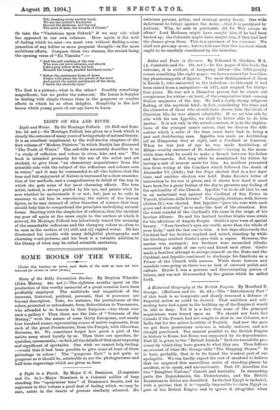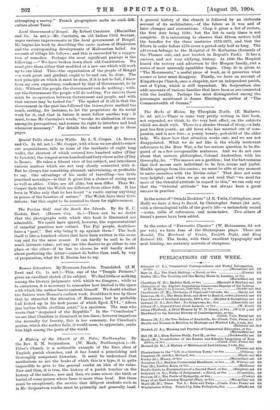A Historical Geography of the British Empire. By Hereford B.
George. (Methuen and Co. 3s. 6d.)—The "Introductory Part" of this book is as temperate and closely reasoned a defence of Imperial action as could be desired. That ambition and self- seeking have had a part in the building up of the Empire it would be idle to deny. Yet it is a fact that some of the principal acquisitions were forced upon us. We should not have had Canada if the French had not sought to shut in our Colonies, nor India but for the active hostility of Dupleix. And now the gain we get from possessions over-sea is wholly indirect, and not cheaply purchased. The nearest parallel to the British Empire in history is Rome, but Rome was supported by its dependencies. Part II. is given to the "British Islands." In it are traced the pro- cesses by which they have grown to what they are. Then follows an account of what Mr. George calls "The Stepping Stones." It is here, probably, that is to be found the weakest part of our apologetic. We can hardly expect the rest of mankind to believe that we acquired this marvellous series of standing-places by accident, so to speak, and unconsciously. Part IV. describes the two "Daughter Nations," Canada and Australia. In succeeding parts the Dependencies, the Protectorates, and the British Dominions in Africa are described. lathe last Egypt is included, with a proviso that it is "equally impossible to claim Egypt as part of the British Empire and to ignore it altogether when
attempting a survey." French geographers make no such diffi- culties about Tunis.



































 Previous page
Previous page